Have Fun in Pyongyang (2019)
Género : Documental
Tiempo de ejecución : 1H 13M
Director : Pierre-Olivier François
Sinopsis
Is it possible to have fun in Pyongyang? Can one be joyful in the Democratic People’s Republic of Korea? If so, who can? Everyone? Doing what? Why does Kim Jong-un bet on amusement parks, skis trails, and tourism? This film allows to go beyond mass parades and recurring missile crisis, to meet the people of North Korean “Hermit Kingdom”. The authors have been there dozen times, like amateur anthropologists, filming during eight years parties and harvests, factories and singing contests, Pyongyang and the countryside – and interviewing North Korean people.

Dave Skylark, presentador de un conocido programa de entrevistas, y su productor, Aaron Rapoport, consiguen una entrevista exclusiva con Kim Jong-Un, dictador de Corea del Norte. Ante tal oportunidad, la CIA les pide un "favorcillo": asesinar a Kim. Pero lo cierto es que Dave y Aaron no son las personas más cualificadas para realizar un magnicidio.
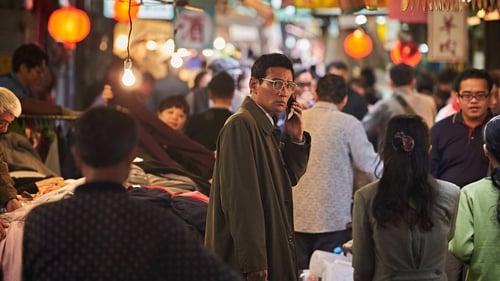
Seúl, año 1993. Un exoficial es contratado por el servicio secreto de Corea del Sur con el nombre en clave 'Black Venus'. Tiene a su cargo la recopilación de información sobre el programa nuclear de Corea del Norte, y se infiltra en un grupo de dignatarios de Pyongyang para gradualmente intentar ganarse la confianza del Partido. Trabajando con total libertad en el corazón del país más secreto y peligroso del mundo, el espía 'Black Venus' se convierte en un peón en las negociaciones políticas entre los gobiernos de las dos Coreas. Pero lo que descubre puede poner en peligro su misión y aquello por lo que ha sacrificado todo.
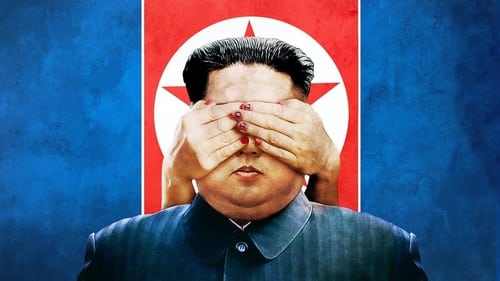
El verdadero crimen se encuentra con el thriller de espías mundial en este apasionante relato del asesinato de Kim Jong-nam, el medio hermano del líder norcoreano. La película sigue el juicio de las dos mujeres asesinas, investigando la pregunta: ¿fueron las mujeres asesinas entrenadas o peones inocentes de Corea del Norte?
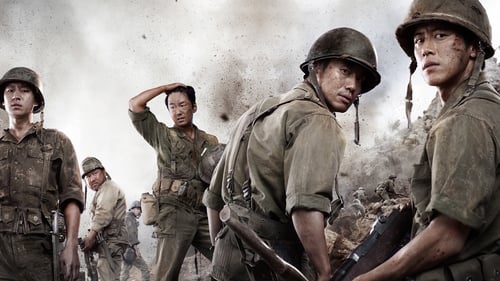
The Frontline se nos presenta una historia que estará centrada en la “turbulenta” relación de amistad entre dos hombres que a priori deberían ser (y son) enemigos. Hacia el final de la Guerra de Corea, un batallón de Corea del Sur lucha ferozmente luchando por conquistar una colina en primera linea de la frontera con el Norte. Kang es enviado a la línea del frente para investigar como avanza la conquista encontrándose un reguero de muerte y a una antigua amistad que se ha transformado en una autentica maquina de guerra.

It’s October 10 2020 and Kim Jong-un presents the largest mobile rocket on Earth. Jippe Liefbroer, Interaction Design student, sees the rocket and thinks: it can be bigger. For his graduation project he built 'Kimmi's worst nightmare', a 31 meter long rocket. That is 1 meter longer than Kim Jung-un's.
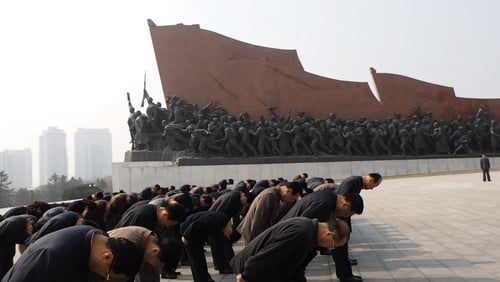
Documental en el que se analizan las diversas técnicas y estrategias de la propaganda, centrándose en el sorprendente y siempre llamativo caso de Corea del Norte. La película ha sido rodada aprovechando el acceso privilegiado a filmar en Corea del Norte de la mano de Alejandro Cao de Benós, el único extranjero que trabaja para el gobierno comunista. El film analiza las estrategias utilizadas por los diferentes "jugadores" para manipular la "verdad" y sus intereses. Noticias falsas, medias verdades y polémicas surrealistas sirven para que el espectador llegue a sus propias conclusiones y reflexione sobre lo difícil que es saber la verdad.
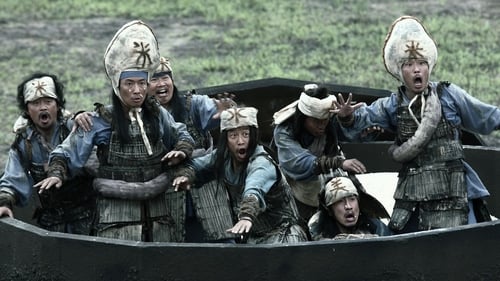
This story unfolds 8 years after 'Battle of Hwangsanbeol', which destroyed Baekjae, when Silla-Tang Dynasty union attacks Goguryeo.
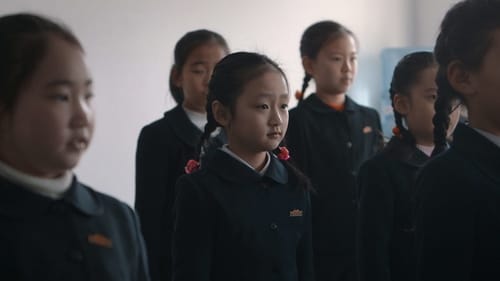
Durante un año esta película sigue la vida de una familia normal de Pyongyang cuya hija es elegida para formar parte de la "Unión de Niños". Las explosiones ritualizadas de color y alegría contrastan marcadamente con la pálida realidad cotidiana, que no es particularmente terrible, sino bastante surrealista, como una vida típica vista "a través de un espejo".
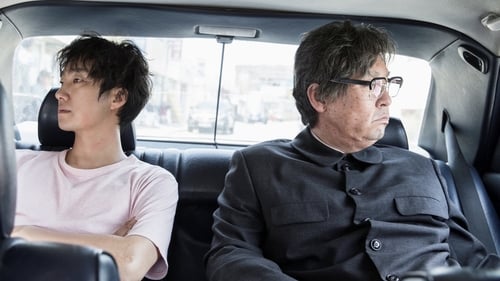
Ambientada en la década de 1970, antes de la primera cumbre de Corea del Norte-Corea del Sur en Corea del Sur. Sung Geun es un actor de teatro que es un apasionado de su trabajo. Él sólo interpreta papeles pequeños. Cuando su hijo Tae Sik era joven, admiraba a su padre, pero él ahora piensa en su padre como una carga. Sung Geun es pronto seleccionado para interpretar un doble para el dictador norcoreano Kim Il Sung.

Dennis Rodman is on a mission. After forging an unlikely friendship with North Korean leader Kim Jong-un, he wants to improve relations between North Korea and the US by staging a historic basketball game between the two countries. But the North Korean team isn't the only opposition he'll face... Condemned by the NBA and The Whitehouse, and hounded every step of the way by the press, can Dennis keep it together and make the game happen? Or will it go up in a mushroom cloud of smoke? For the first time, discover the true story of what happened when Dennis Rodman took a team of former-NBA players to North Korea and staged the most controversial game of basketball the world has never seen.
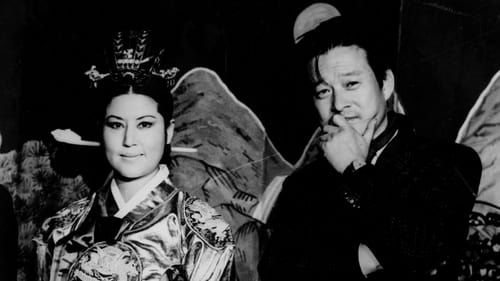
Hong Kong, 1978. La actriz surcoreana Choi Eun-hee es secuestrada por agentes norcoreanos siguiendo órdenes del dictador Kim Jong-il. Su exmarido, el director de cine Shin Sang-ok, emprende su búsqueda, pero poco después también él es secuestrado. En 1983, después de vivir años de tribulaciones, Kim Jong-il los pone al frente de la industria cinematográfica norcoreana con la esperanza de obtener reconocimiento internacional.

Shin Dong-Huyk was born on November 19, 1983 as a political prisoner in a North Korean re-education camp. He was a child of two prisoners who had been married by order of the wardens. He spent his entire childhood and youth in Camp 14, in fact a death camp. He was forced to labor since he was six years old and suffered from hunger, beatings and torture, always at the mercy of the wardens. He knew nothing about the world outside the barbed-wire fences. At the age of 23, with the help of an older prisoner, he managed to escape. For months he traveled through North Korea and China and finally to South Korea, where he encountered a world completely strange to him.
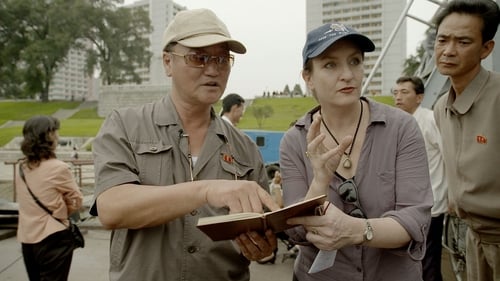
A revolutionary film about the cinematic genius of North Korea's late Dear Leader Kim Jung-IL, with a groundbreaking experiment at its heart - a propaganda film, made according to the rules of his 1987 manifesto. Through the shared love of cinema, AIM HIGH IN CREATION! forges an astonishing new bond between the hidden filmmakers of North Korea and their Free World collaborators. Revealing an unexpected truth about the most isolated nation on earth: filmmakers, no matter where they live, are family.

On the morning of her first day at a new school, a girl practices different ways to greet her teacher in order to make a good impression. A bundle of nerves, she heads off to school, and, contrary to her expectations, is met with indifference by the teacher.

Bob Woodruff’s daring 880-mile journey along the China-North Korea border examines the delicate relationship between the two countries and the United States.
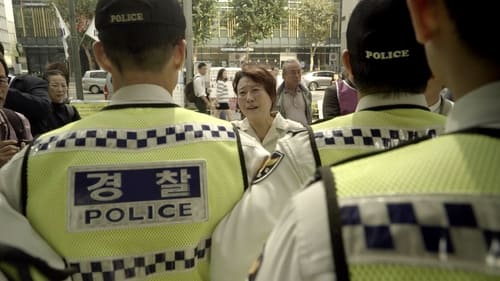
Ryun-hee Kim, a North Korean housewife, was forced to come to South Korea and became its citizen against her will. As her seven years of struggle to go back to her family in North Korea continues, the political absurdity hinders her journey back to her loved ones. The life of her family in the North goes on in emptiness, and she fears that she might become someone, like a shadow, who exists only in the fading memory of her family.

Is it possible to have fun in Pyongyang? Can one be joyful in the Democratic People’s Republic of Korea? If so, who can? Everyone? Doing what? Why does Kim Jong-un bet on amusement parks, skis trails, and tourism? This film allows to go beyond mass parades and recurring missile crisis, to meet the people of North Korean “Hermit Kingdom”. The authors have been there dozen times, like amateur anthropologists, filming during eight years parties and harvests, factories and singing contests, Pyongyang and the countryside – and interviewing North Korean people.

From 1950 to 1953, one hundred thousand children were orphaned by the Korean War. With no resources to mend the wounds, the two sides, North and South, took different paths to find homes and families for the war orphans. While the children of South Korea were sent to Europe and the United States through ‘International Adoption’, the children of North Korea were distributed across Eastern Europe through a method called ‘Commissioned Education’. As a result, more than five thousand children from the North had to spend nearly a decade living in foreign lands across Eastern Europe. This story is a record of their lives, which used to be kept hidden from the rest of the world. There is a key to understanding how North Korea's closed political structure began and how the ‘Juche ideology’ was formed in this documentary movie. Understanding North Korea in the 1950s is an important way to understand North Korea at present.

















